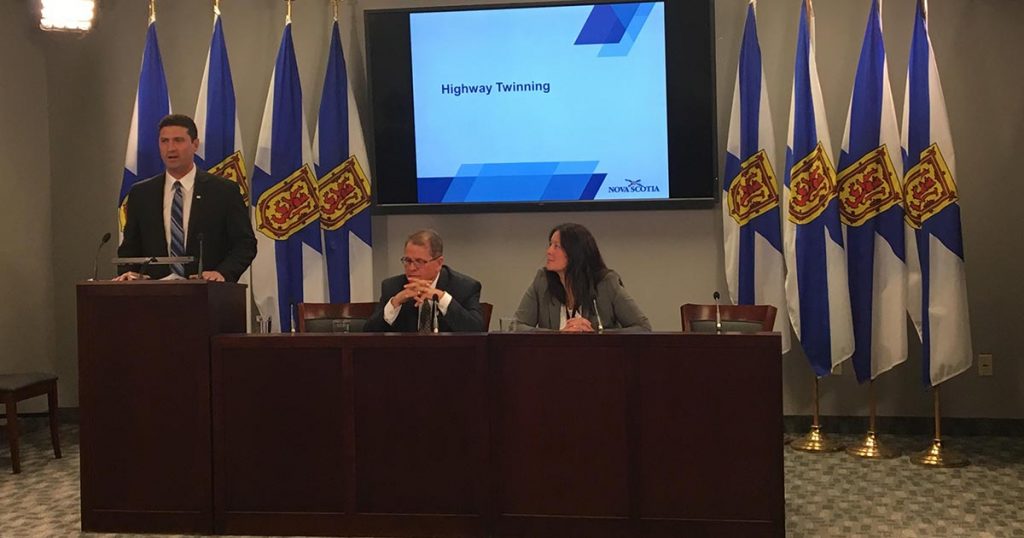After hearing from Nova Scotians during province-wide twinning consultations, government is investing an additional $390 million in capital funding over seven years to improve highways without the use of tolls.
“We did not hear overwhelming support from Nova Scotians about paying a toll for twinned highways, but they were clear we should act now to improve our roads,” said Geoff MacLellan, Minister of Transportation and Infrastructure Renewal. “We will do that with an emphasis on safety and, at the same time, we will create economic opportunities for Nova Scotians.”
The additional $390 million will allow the province to add three sections of twinned 100-series highways to the existing highway plan. Government will also build the Burnside Connector. All four projects will be complete within seven years.
The four projects are:
- Highway 101, Three Mile Plains to Falmouth, including the Windsor Causeway, 9.5 kilometres
- Highway 103, Tantallon to Hubbards, 22 kilometres
- Highway 104, Sutherlands River to Antigonish, including Barneys River, 38 kilometres
- construction of the four-lane, divided Burnside Connector (Highway 107) between Burnside to Bedford, 8.7 kilometres.
Sections of the highways will open as they are completed.
“I’m overjoyed that twinning is in the foreseeable future,” said Joe MacDonald, chief of Barneys River Volunteer Fire Department. “It’ll mean a lot to have a safe road through Sutherlands River. I believe many lives will be saved.”
The funding also includes $30 million for safety improvements on un-twinned sections of highway. Those measures could include interchange improvements, passing lanes and turning lanes. A safety study on Highway 107 from Burnside to Musquodoboit will also be conducted.
The provincial contribution will be used to access federal cost shared infrastructure programs. Nova Scotia has submitted business cases to the federal government for consideration. The province will continue to work with them to formalize agreements.
The province will also be removing tolls from the Cobequid Pass for Nova Scotia motorists once the bonds are paid off (expected to be in 2019). A decision on commercial trucks and non-Nova Scotia residents will be made as we move closer to this date and have fully assessed the long-term maintenance and operating costs.
“We want to give Nova Scotia motorists a break. As we move closer to 2019, we’ll look at how we’ll maintain this crucial piece of infrastructure,” said Mr. MacLellan.
Nearly 2,000 Nova Scotians took part in 14 public sessions between January 30 and March 9. Feedback was also received from close to 5,400 people through online submissions. The feedback, along with consultation presentations and materials, can be viewed at novascotia.ca/twinning.
